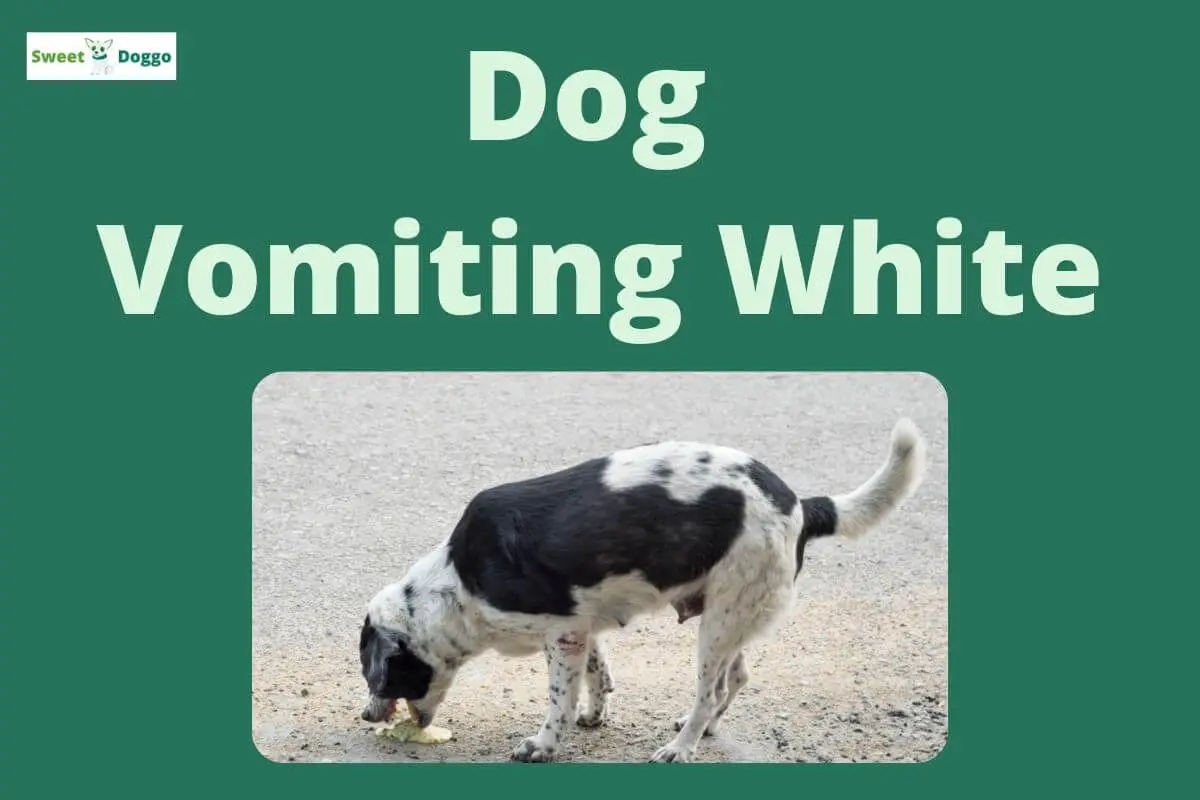In general, dog owners have difficulty identifying the different types of canine vomiting. In the specific case of dog vomiting white slime or foam, it is a symptom that is usually related to indigestion or other stomach problems, but it is known that it can also be due to other causes, some of which are more serious.
Although in the case of vomiting it is always advisable to consult the veterinarian, here is a summary of the main causes that may be causing the white vomit in dogs.
Note. During the writing of this article, different specialized sources in veterinary health were consulted, including the digital journal PetMD, the official website of the WSU College of Veterinary Medicine, and the Merck Veterinary Manual.
Table of Contents
7 Causes of white vomit in dogs
1. Indigestion
Just like us, dogs can get upset stomachs from time to time. Precisely, this is the number one cause of white vomit with a foamy appearance. Digestive problems are often due to eating a new type of food or eating items not fit for consumption, such as grass, dirt, and garbage. Sometimes white vomit from indigestion just indicates that your dog has eaten the food too quickly.
Of course, in case the pet vomits regularly, do not hesitate to consult the veterinarian to make sure that there is no underlying health problem.
2. Acid reflux
White, foamy vomit can also be a symptom of acid reflux, especially if it occurs early in the morning. On an empty stomach, excess stomach acid can irritate the walls of the stomach, the esophagus, and the gastrointestinal tract in general, causing nausea, vomiting ( white or yellowish ), and pain when eating food. Dogs that suffer from acid reflux are more likely to develop gastritis.
Reducing the portion size you serve your dog at each meal and feeding more frequently can help prevent stomach acid buildup and therefore reduce the likelihood of vomiting.
3. Kidney problems
If the dog has been vomiting white foam, but you notice that he is also showing symptoms of lethargy, weakness, or disorientation, it is very likely that the vomiting is not related to his stomach, but to the health of his kidneys. Another sign that can help you get out of doubt is if the pet has difficulty urinating. In that case, go to the vet’s office as soon as possible; remember that untreated kidney disease can lead to long-term kidney failure.
4. Pancreatitis
Pancreatitis is a condition characterized by inflammation in the pancreas. When they have pancreatitis, dogs often vomit up their food along with white liquid or foam. Other warning symptoms are dehydration, loss of appetite, pain in the abdomen, and weakness.
On the other hand, it is common for a dog with this condition to adopt what is known as a “praying position”, which involves lowering the head and front legs while keeping the rear elevated. If you suspect that your dog has pancreatitis, take him to the vet as soon as possible.
5. Parvoviruses
Parvovirus is an extremely serious viral illness. Although puppies are more vulnerable than adult dogs, the truth is that parvovirus can affect a dog of any age. In addition to white vomit, symptoms of parvo include fever, bloody diarrhea, weakness, and sudden weight loss. This is another situation that requires immediate medical attention.
6. Infectious tracheobronchitis or kennel cough
Infectious tracheobronchitis is an infection of the upper respiratory tract, commonly seen in dogs that live for a long time in a kennel, hence it is also known as “kennel cough”. But a dog can develop this condition in any setting where there is close contact with other dogs, such as parks and daycare centers.
In addition to foamy white vomit, the pet may have a persistent cough, lethargy, and a runny nose. The good news is that kennel cough can be successfully treated in most cases. Better yet, it can be prevented through timely and up-to-date vaccination.
7. Bloating (gastric dilatation-volvulus)
Bloating is the colloquial name for two canine stomach disorders: gastric dilatation, where the stomach fills with gas, and gastric dilatation-volvulus, where the gas-filled stomach twists on itself. This is an extremely serious condition that can be life-threatening ( pressure on the dog’s diaphragm makes it difficult for him to breathe, reducing blood flow to the heart ). The dog may exhibit white vomit, excessive drooling, pale gums, a persistent cough, and an inability to defecate. Seeking emergency veterinary attention is essential to save the life of the pet in these cases.




